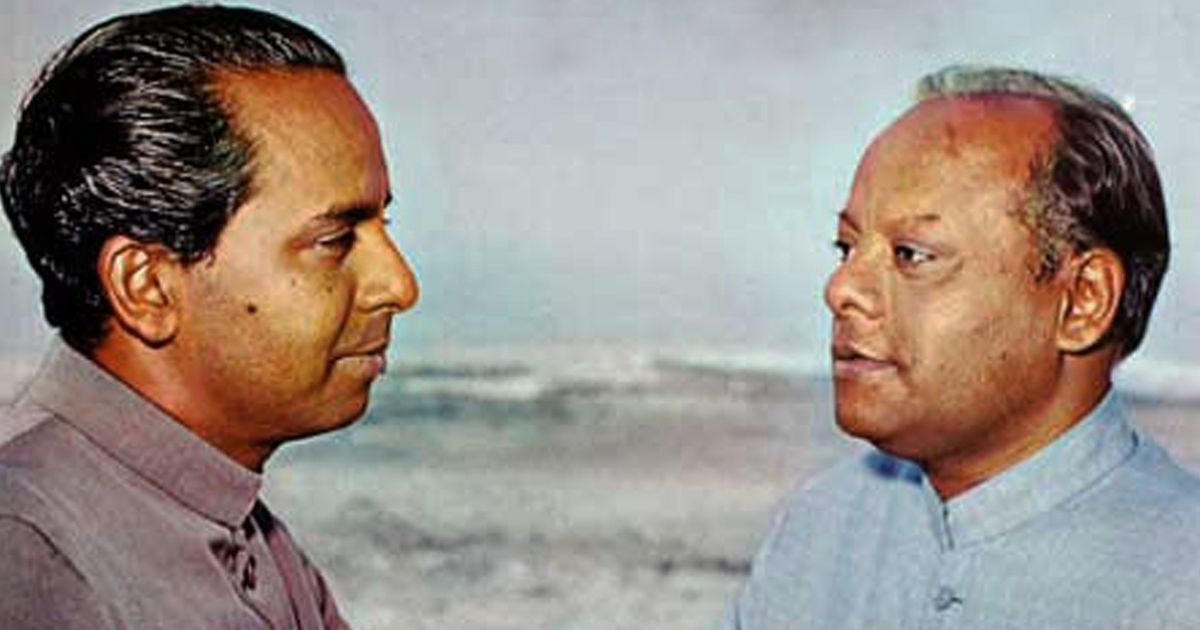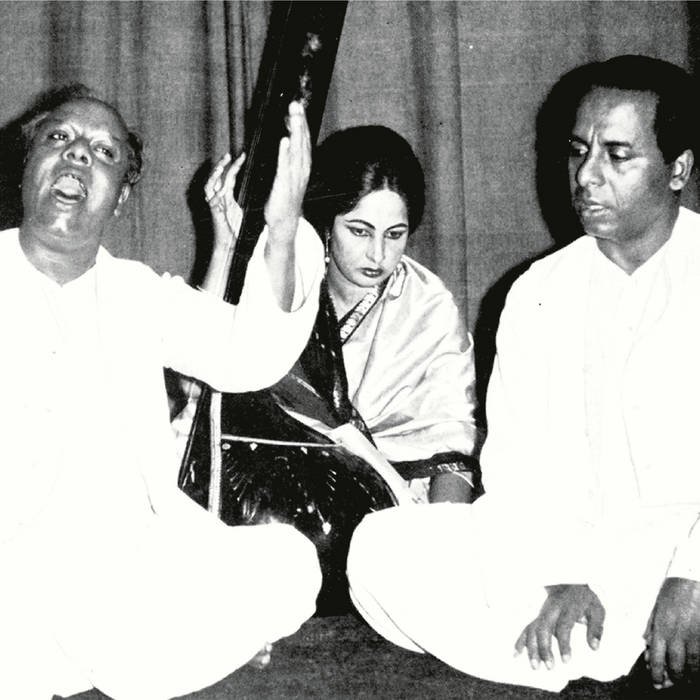Outer Sounds 042 - April 2024
The selection for April 2024 is Dagar Brothers Berlin 1964 - The Lost Studio Recording LP released by Black Truffle.
Following on from last year’s acclaimed Vrindavan 1982 by rudra veena master Z.M. Dagar, Black Truffle is thrilled to present a pair of archival releases from the Dagar Brothers, among the most revered 20th century exponents of the ancient North Indian dhrupad tradition. The vocal duo of Moinuddin and Aminuddin Dagar (sometimes referred to as the ‘senior’ Dagar Brothers to distinguish them from their younger siblings, Zahiruddin and Faiyazuddin Dagar), belonged to the nineteenth generation of a family of musicians in which dhrupad tradition has been kept alive through patrilinear transmission, each generation undergoing a rigorous education of many years’ duration that can include singing up to twelve hours each day.
Famed for the meditative purity of their approach to dhrupad, the Dagar Brothers helped to keep the tradition alive in the years after Indian independence in 1947, when the royal courts that had traditionally patronised dhrupad musicians were abolished. Many Western listeners were first introduced to dhrupad by the Dagar Brothers’ tour of Europe in 1964-65 and their LP in UNESCO’s ‘Musical Anthology of the Orient’ collection, both organised by pioneering musicologist and scholar of Indian culture Alain Daniélou. Documents from this tour are especially precious, as Moinuddin Dagar passed away in 1966. Berlin 1964 – The Lost Studio Recording (released alongside BT115, a newly discovered concert recording from the same trip) presents two unheard side-long performances in crystalline fidelity, recorded at the International Institute for Comparative Studies and Documentation in Berlin headed by Alain Daniélou. These stunning recordings were consigned to the archive because, as Peter Pannke explains in his liner notes, which recount his meeting with Danielou many years after these recordings were made, the tape ran out during ‘Raga Jaijaivanti’, which terminates abruptly soon after the entry of the pakhawaj.
Accompanied only by Moinuddin’s wife Saiyur on tanpura and Raja Chatrapati Singh on pakhawaj (a large double-headed drum), the brothers present stunning performances of the severe, serious midnight ‘Raga Malkauns’, set to a ten beat cycle once the pakhawaj enters, and the complex early evening ‘Raga Jaijaivanti’, set to a fourteen beat cycle in its rhythmic section. True to the traditional dhrupad structure, both performances are dominated by the long free-floating alap section, where the notes of the raga are gradually introduced, slowly climbing in pitch and intensity as the two singers trade improvisations that display a stunning range of vocal tones and remarkable subtlety in mictrotonal nuance. The performance of ‘Raga Malkauns’ is divided roughly in half, with the pakhawaj and unison singing entering around thirteen minutes through; Raja Chatrapati Singh’s performance is particularly striking in its endlessly inventive metrical nuance within the overall crescendo and acceleration. On ‘Raga Jaijaivanti’, the alap lasts almost twenty minutes, with Singh joining only for a few minutes of sparse pakhawaj hits before the tape cuts off, the absence of the more active concluding section serving only to magnify the mystical calm the Dagar Brothers establish in this setting of a 16th century love poem.
Illustrated with a striking full colour concert photograph, Berlin 1964 – The Lost Studio Recording is accompanied by extensive liner notes by Peter Pannke celebrating musicologist Alain Daniélou, whose study, documentation and promotion of dhrupad was so important for spreading awareness of this great musical tradition, ready to be discovered anew in this stunning recording from two of its master exponents.





